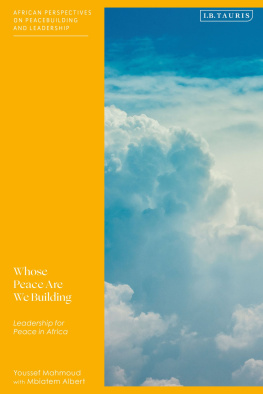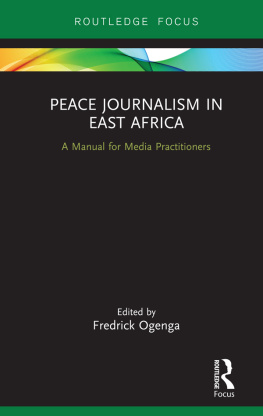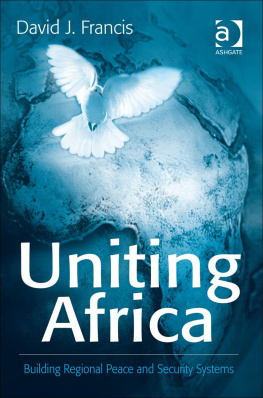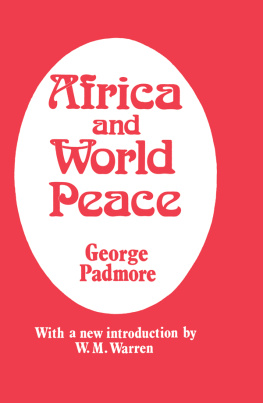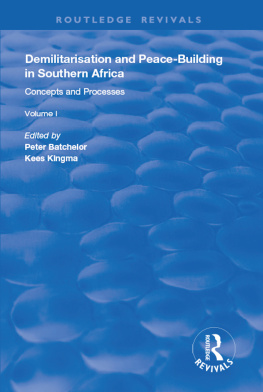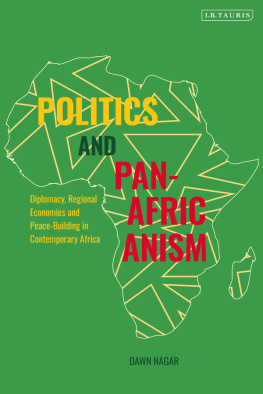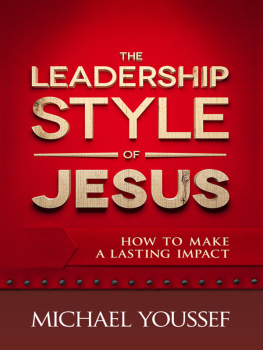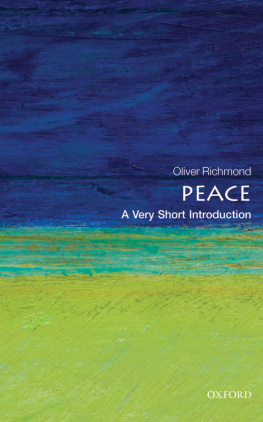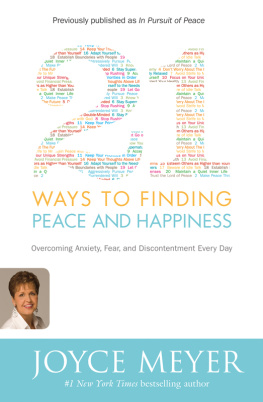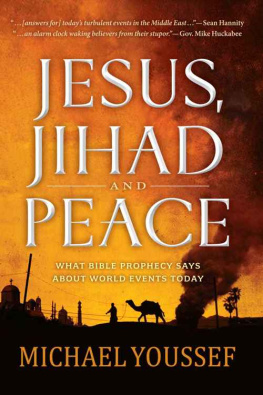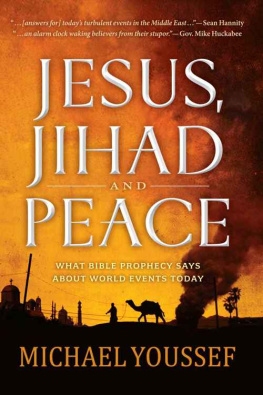African Perspectives on Peacebuilding and Leadership
Published in collaboration with the African Leadership Centre, Kings College London
Published in association with the African Leadership Centre, this unique and much-needed series brings together leading African practitioners from leaders of peace missions to UN special envoys in order to provide critical perspectives on current understandings of peacebuilding and leadership. Featuring unique, insider accounts of peacebuilding processes; in-depth analysis of the institutional obstacles faced; as well as theoretical and practical insights into how the present paradigm might be changed, the series presents a repository of cutting-edge knowledge for anyone interested in conflict, security and development.
The African Leadership Centre (ALC) is an internationally renowned academic unit based within Kings College London, with a semi-autonomous research and training centre in Nairobi, Kenya. It incorporates a global community of scholars, whose cutting-edge research on peace, leadership, development and security issues aims to inform and influence intellectual debate, teaching and learning as well as policy discourses both in Africa and globally. Over the years the ALC has attracted some of the most influential African and global thought leaders, diplomats, military personnel, politicians and civil society leaders to speak at lectures and debates with its students in London and Nairobi. The ALCs overarching aim is to develop the next generation of African scholars, analysts and leaders.
The series editors are Professor Funmi Olonisakin, ALC, Kings College London; Shuvai Nyoni, Director, ALC Nairobi; and Dr Eka Ikpe, ALC, Kings College London.
We are living in particularly challenging times. Liberal and social democracies are being overrun by intolerant far right ideologies that embrace ethno-nationalism, xenophobia, racism, exclusion and violence.
This is not only a Western phenomenon. These virulent ideologies thrive in many other parts in the world. They are dangerously undermining democracy and rule of law, fundamental freedoms and human rights.
And as if the above is not enough, since December 2019 the world has been shaken by the Covid-19 pandemic, with no clear end in sight, and a global recession without precedent is under way throwing back hundreds of millions of people into poverty.
It is against this dark international tableau that Youssef Mahmoud offers us lessons in leadership and hope.
I am pleased to have been asked by Youssef to write some words of introduction to this absolutely timely book written by someone growing up poor in a Tunisian fishermens village and having to look after many siblings. Someone who through sheer determination and the support of benefactors was able, after many detours, to make it all the way to the United Nations where he ended up towards the end of his long career leading two UN peace operations in Africa.
We have similar life experiences. I too was born and grew up in an impoverished colonial backwater, being one of eleven brothers and sisters. But unlike Youssef, I did not arrive in New York in December 1975 to begin a dream career in the UN system. I travelled to NY as a rebel with a cause, to advocate the cause of self-determination for our people. We had declared independence unilaterally from Portugal in the closing weeks of 1975, animated by the forgivable illusion that this would deter the impending invasion of our defenceless, impoverished and betrayed country by the mighty military regime in neighbouring Indonesia.
After decades of difficult struggles in the service of peace and freedom in my own country, I found myself as a former President, the UN Secretary-Generals Special Representative in Guinea-Bissau and thus can relate to much of the challenges Youssef relates in the book.
Youssefs path and mine crossed when in October 2014 he and I were invited by Secretary-General Ban Ki-moon along with several enlightened and richly experienced international diplomacy practitioners to review UN Peace Operations since the first major report fifteen years earlier that became known as the Bhahimi Report. The High Level Independent Panel on UN Peace Operations which I co-chaired with an outstanding UN leader, Ameerah Haq was tasked by the Secretary-General to propose a comprehensive review and restructuring of UN Peace operations to make them fit for purpose and adaptable to the twenty-first century security challenges facing the international community.
The UN is a constellation of sovereign States led by elected and unelected leaders whose paramount allegiance is to their countrys national interests. In conflict and post-conflict contexts, these interests take on at times conflicting dynamics that are rarely conducive to peace. It falls to the UN Secretary-General and the staff he appoints to represent him in these contexts to try to untangle this complicated web of interests, identify common ground and work with warring factions to help them move from violence to politics. It is no easy task as my own experience in Guinea-Bissau attests.
Youssef Mahmoud belongs to the small group of UN Envoys with solid academic backgrounds and professional experience, who spared no efforts to understand the country contexts where he was called upon to serve and listen with the intent to understand not just with the intent to help or solve problems, most of which were beyond his influence and control.
This book, Whose Peace Are We Building? is essentially about leadership in the service of peace. It is an invaluable guide for leaders at every level who aspire to contribute to a more peaceful, just and secure world.
In the concluding chapter of the book, Youssef eloquently shares some of the lessons he learned from his leadership journey. I quote below a short excerpt from that chapter:
In the changing and uncertain environment we live in, context and followers have increasingly become far more important than leaders. As a manager of a UN Mission, I had to recognize the valuable benefits of drawing on the diverse expertise and perspectives of followers whose values, belief systems, language and culture may be different from mine. In countries under stress, leaders emerge from many places and no society, however broken, is bereft of ideas and aspirations.
J. Ramos-Horta
Former President of Timor-Leste
Nobel Peace Laureate
Latest book: Words of Hope in Troubled Times, published by Longueville Media, 2018
After a period in which armed violence and proxy wars seemed to be on the decline, it more recently appears to be again on the rise. The threats to our global security are many and varied, from health pandemics to the threat of nuclear war in the case of North Korea, to persistent and seemingly intractable conflicts in Afghanistan, the Central African Republic (CAR), Iraq, Libya, South Sudan, and Syria, among other places. The ever-growing threat of terrorism fuelled by social exclusion, marginalization and discontent, and accelerated by radical ideologies poses a clear and present danger to international and regional security, as well as to the Westphalian state system.
The unprecedented number of forcibly displaced persons in recent years has led to national introversion in many countries, at a moment when cooperation and proactive leadership is needed to prevent further deterioration. These evolving and multifaceted global threats pose serious challenges to the ambitions of sub-regional, regional and international organizations rendering the path to peace exceedingly difficult. The inability to prevent these threats, let alone address their devastating consequences, has raised questions about the legitimacy and relevance of inter-state governance structures. The policies of some global powers to pursue peace through strength and military prowess, or to perpetuate conflict in order to pursue their own narrow strategic interests, has made the path to durable peace even more treacherous. It has also taken us off course; away from the cooperative principles and practices enshrined in the United Nations Charter for the maintenance of international peace and security.



